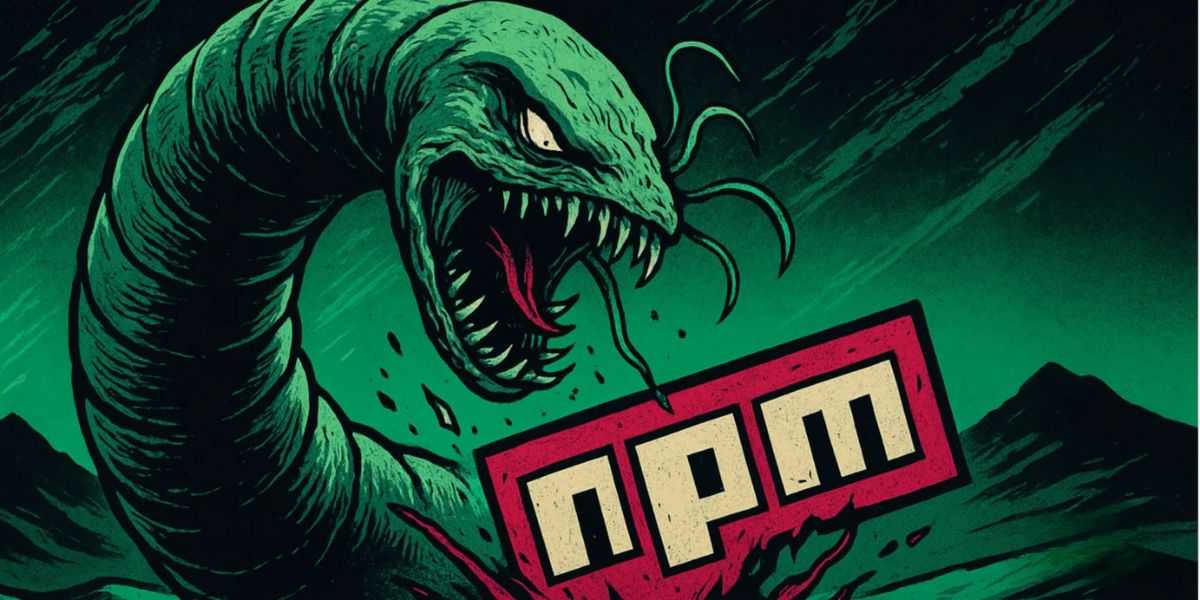
A new, alarming software supply-chain attack dubbed ‘Shai-Hulud’ has been uncovered targeting the JavaScript npm ecosystem.
Researchers from several security firms, including Palo Alto Networks Unit 42, Wiz, Sysdig, and Sonatype, confirm this is one of the most serious compromises npm has ever seen. Over 180 packages have been infected. The malicious code not only steals developer credentials, but propagates itself automatically, turning trusted open-source software into a risk vector.
How Shai-Hulud Works
The attack appears to begin with a phishing campaign that tricks maintainers into exposing their npm and GitHub tokens, often via a fake request to update multi-factor authentication settings. Once access is gained, a post-installation script embedded in malicious package versions executes several stages.
It uses tools like TruffleHog to scan for secrets, looking at .npmrc files, environment variables, cloud credentials on AWS, GCP, Azure, etc. It also exfiltrates these secrets to attacker-controlled GitHub repositories, usually named Shai-Hulud, sometimes making private repositories public.
If a package maintainer has valid npm tokens, the worm automatically identifies other packages they maintain and publishes new, compromised versions to those packages. This self-replication lets the malware spread without direct human action after the initial infection.
Several popular packages are affected, including @ctrl/tinycolor, among many others.
Consequences & Global Risk
Because npm is deeply embedded in web development work globally, this attack threatens everything from small hobby projects to large software deployments.
Developers and organizations that installed compromised versions may have exposed tokens or credentials that give attackers access to cloud infrastructure, private repositories, or even production environments. If malicious versions of packages were used in live apps, users could be at risk of data theft or other security breaches.
In many places, open-source ecosystems receive little regulatory oversight, making defense harder. For countries or companies with less mature cybersecurity infrastructure, the risks are especially high.
What Developers Should Do Now
Security experts are pushing immediate remediation steps:
- Identify and remove any affected package versions from local projects. Clear caches and reinstall clean versions.
- Rotate or revoke all credentials (npm tokens, GitHub PATs, cloud provider keys) that may have been exposed.
- Audit CI/CD pipelines, GitHub Actions workflows, and repositories for suspicious branches or public repos named Shai-Hulud or suffixed with -migration.
Security tools able to detect post-install scripts executing unauthorized commands, monitoring environment variables, or scanning for unusual repository workflows are being strongly recommended.
Why Shai-Hulud Hits Home, Including for Pakistan
Supply chain attacks like this one don’t respect borders. In many countries including Pakistan, software development often uses open-source packages hosted on npm. Local developers, startups, universities, and even government projects that rely on JavaScript libraries are potentially affected if they unknowingly include compromised dependencies.
Moreover, digital infrastructure in Pakistan already deals with challenges like patchy regulatory oversight, limited cybersecurity resources, and weak enforcement of secure development practices.
This means Shai-Hulud could hit Pakistani organizations harder. Awareness, rapid updates, and strong cybersecurity hygiene are critical everywhere, but especially where the ecosystem is still growing.
